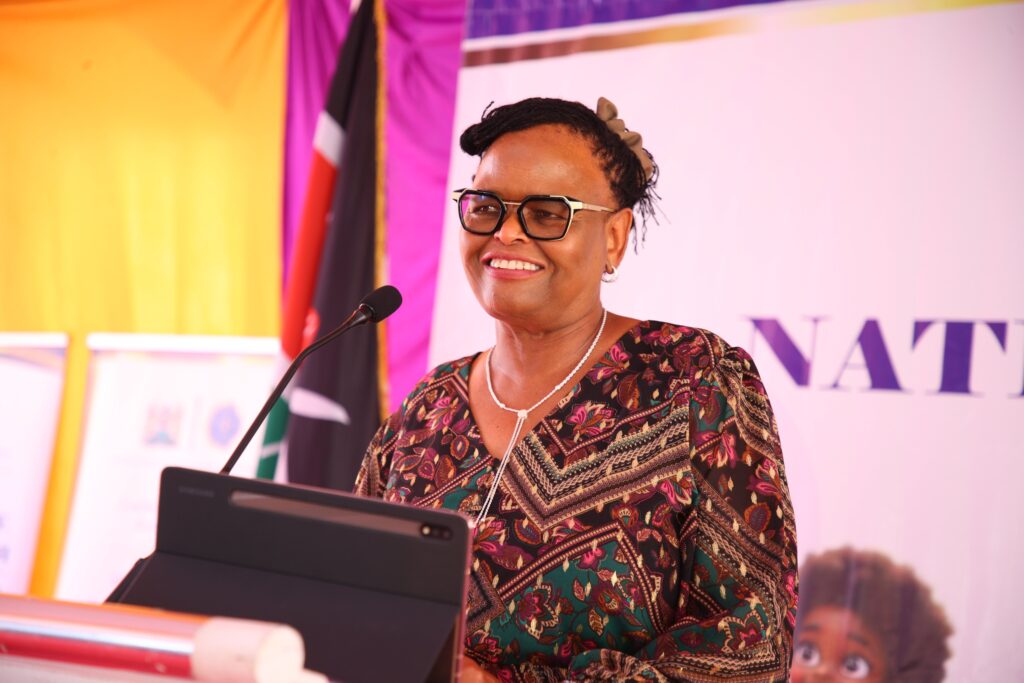Chief Justice Martha Koome has emphasized the importance of collaboration among key justice stakeholders to advance reforms in child justice.
During the inauguration of the National Child Justice Service Month at Kirigiti Rehabilitation School in Kiambu County, the Chief Justice urged the Office of the Director of Public Prosecutions (ODPP),
Tthe Department of Children Services (DCS), and the Probation Department to work closely with healthcare and psychosocial professionals to enhance support for children involved in the justice system.
“The engagement of healthcare experts, social workers, and community partners is vital in this endeavor.
I extend an invitation to psychologists, therapists, social workers, and counselors to join us in establishing a robust network to aid children entering the justice system,” said the Chief Justice.
She emphasized the need for comprehensive screening, assessment, and personalized counseling to create a supportive environment that addresses the individual challenges each child faces, fostering healing and rehabilitation.
As chairperson of the National Council on Administration of Justice (NCAJ), Koome announced plans to pilot Court Annexed Psychosocial Support and Therapy to establish guidelines for psychosocial assistance for both court users and judicial officers.
“I invite our partners to join us on this journey, and I express my gratitude to the counselors and psychologists who have generously volunteered to support this initiative. Your contributions are invaluable,” she stated.
The Chief Justice called for unity within the justice system as they await the finalization of the Children in Conflict with the Law Rules, which aim to implement preliminary inquiries, family group conferencing, and diversion for children facing legal issues.
She noted that these actions reflect compassion and align with constitutional mandates to treat detention as a last resort.
“As we collaborate with the NCAJ to enhance diversion frameworks, we can cultivate an environment where children receive guidance and support in their communities, maximizing their potential to become responsible members of society,” she remarked.
The launch of the 2024 National Child Justice Service Month signifies a commitment to protecting the rights and dignity of children entangled in the justice system.
“Your presence here today symbolizes our collective mission: to create a child-centered justice system that not only safeguards but transforms young lives,” she added.
With this year’s theme, “Enhancing Child Justice through Preliminary Inquiry and Diversion: Promoting Rehabilitation, Reintegration, and Dignity for Children in Conflict with the Law,”
Koome urged all stakeholders to focus on the specific needs of each child, viewing them not merely as offenders but as individuals deserving understanding and compassion.
“Today, as we embark on a month of awareness, we also commit to actions that prioritize restorative justice for children.
Preliminary inquiries and diversion practices respect each child’s unique circumstances, offering them a chance to address the underlying issues that lead to their legal troubles,” she explained.
The Chief Justice reiterated that the Constitution and the Children Act, 2022, enshrine every child’s right to care, protection, and rehabilitation.
She highlighted the vulnerability of children in the justice system, stating that they require collective support and intervention rather than being treated as mere cases.
“Through our Judiciary’s ‘Social Transformation through Access to Justice’ (STAJ) framework, we advocate for therapeutic jurisprudence, promoting collaboration among healthcare, social services, and the justice system for the holistic well-being of each child,” Koome stated.
She also commended Hon. Lady Justice Grace Nzioka of Naivasha Law Courts for her extraordinary commitment, having opened her court on a Sunday during the maandamano period to facilitate the return of children to their homes in time for school.
“This act illustrates our core mission: justice is a service, a commitment that transcends schedules and formalities. Thank you, Justice Nzioka, for reminding us of the humanity that underpins our work,” she said.
Additionally, the Chief Justice expressed grave concern about the rising incidence of femicide in the country, stating that the issue cannot be overlooked as women and girls face severe violence.
She highlighted a disturbing statistic from the Deputy Inspector of Police indicating that 97 women have been killed in the last 90 days.
“This crisis calls for urgent action from all sectors of society.
I urge law enforcement, justice agencies, social services, and civil society organizations to heighten their vigilance and protective measures,” she asserted.
Koome called on police officers, community leaders, and citizens to collaborate in ensuring the safety of women and girls in their homes, schools, workplaces, and neighborhoods.
“Preventing violence against women and girls is a shared moral duty, not just a legal obligation,” she stated.
“To every Kenyan, I urge you to break the silence, speak out, and dismantle the systems that permit such egregious acts.
We must work together to create communities where women and girls feel safe, valued, and respected.
Combating femicide demands not only legal responses but also a profound societal transformation, affirming that no woman or girl’s life should ever be considered expendable,” concluded Justice Koome.
